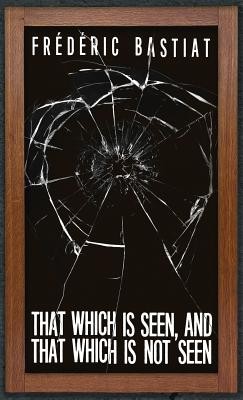
- We will send in 10–14 business days.
- Author: Frédéric Bastiat
- Publisher: Suzeteo Enterprises
- ISBN-10: 1947844334
- ISBN-13: 9781947844339
- Format: 14 x 21.6 x 0.6 cm, kieti viršeliai
- Language: English
- SAVE -10% with code: EXTRA
That Which is Seen, and That Which is Not Seen (e-book) (used book) | bookbook.eu
Reviews
Description
Frédéric Bastiat is well known for his 'broken window' parable. While other economists were looking at how maintaining a standing army, launching public works projects, and even destroying things, as a way to spur the economy, Bastiat showed in this classic economics essay just how wrong this thinking is -- or at least, how it is incomplete. 'What is seen' is plain enough: the broken window. 'What is not seen' requires some imagination and curiosity, but is nonetheless real: the things not purchased because the money had to be used for the window, and other unintended consequences.
This is the original 1853 English translation out of the original French, as found in Bastiat's "Essays on Political Economy."
EXTRA 10 % discount with code: EXTRA
The promotion ends in 22d.08:04:32
The discount code is valid when purchasing from 10 €. Discounts do not stack.
- Author: Frédéric Bastiat
- Publisher: Suzeteo Enterprises
- ISBN-10: 1947844334
- ISBN-13: 9781947844339
- Format: 14 x 21.6 x 0.6 cm, kieti viršeliai
- Language: English English
Frédéric Bastiat is well known for his 'broken window' parable. While other economists were looking at how maintaining a standing army, launching public works projects, and even destroying things, as a way to spur the economy, Bastiat showed in this classic economics essay just how wrong this thinking is -- or at least, how it is incomplete. 'What is seen' is plain enough: the broken window. 'What is not seen' requires some imagination and curiosity, but is nonetheless real: the things not purchased because the money had to be used for the window, and other unintended consequences.
This is the original 1853 English translation out of the original French, as found in Bastiat's "Essays on Political Economy."


Reviews